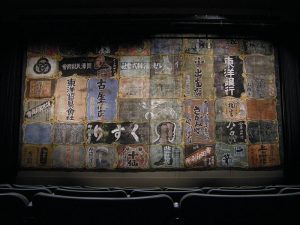動揺と混乱を悟られたくなくておおげさに机にうつぶせたぼくの頭や背中に、類がどさどさと落ちてきた。
重松清「チマ男とガサ子」
We do not expect, in most cases, to find an object with a verb that appears to be conjugated as a passive. In this case, what we have is the indirect, or adversitive, passive (間接受身), in which the topic/subject of the passive verb will be affected (emotionally) negatively (in most cases) by the action, the agent of which would be marked by ni (if it appeared in the sentence.)
山田さんは奥さんに逃げられた。
Mr. Yamada’s wife ran away on him. (Presumably a negative.)
太郎は春子にタバコを吸われた。
Taro had a cigarette smoked by Haruko (imposed) on him. (Also negative.)
木村さんは美人に横に座られてうれしそうだ。
Mr. Kimura, having had a pretty woman sit beside him, looks happy. Here the effect is positive.
Usually, the agent of the event is animate and the action is volitional. There is, however, one common exception to that rule:
僕は雨に降られた。
I was rained on.
Therefore, the phrase in the sentence at the top, were it an independent
sentence with all implied elements made explicit, would be:
ぼくが彼に動揺と混乱を悟られたくない。
I do not want him to perceive the tumult and confusion (in my heart/mind) (as
that would bother me.)

ZH suggested that “I got rained on” might convey the affective passive better than “I was rained on,” but I deleted his comment accidentally.